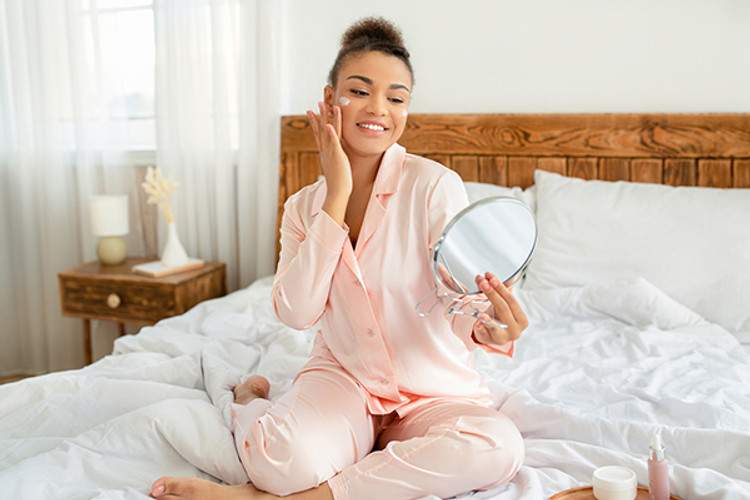Posted by Sweetsation Therapy on 14th Nov 2019
Are natural ingredients always better?
And the dialog is still open whether natural cosmetics are better than conventional, not so natural. Many ask to confirm if natural cosmetics are safe and better to use? Being the owner of a natural skin care brand I wholeheartedly want to say that YES – natural is always better. But in reality, there is more than one shade of green.
Here I will tell you about times when natural cosmetics are in fact not safer than their synthetic alternatives. My personal opinion is that to have a balanced approach to the ingredients that we use and follow their safety profile regardless whether they are natural or not, is always best approach. For both, safety and product performance. When it comes to educational view point, It is also not fair and misleading to tell consumers that synthetic ingredients are not as safe and even harmful solely based on their non-natural composition.
The truth of the matter is that many natural ingredients are not necessarily safe. And many synthetic ingredients are not necessarily toxic. I will give you a few examples.
- 1.Natural soap. When natural soap is made, it has to go through a natural saponification process resulting with the finished product being at least Ph9-9.5. And usually it’s closer to Ph10. Regardless of the process how the soap was made (usually Sodium Hydroxide (Lye) is used as catalyst which is PH12) the final Ph9-10 is not skin friendly at all. Moreover, it is shocking that many natural soaps are marketed for facial skin and even babies. Babies’ delicate skin is even a little bit more acidic than adults. It is the best to not use any natural soap bars on their skin. Better instead to opt for a gentle liquid wash with a Ph5-5.5. Most if not all commercially available skin washes should be Ph adjusted to this level.
- 2.Essential Oils. A lot of people are assured that essential oils are safe to use directly on skin. They smell great and have therapeutic properties. What possibly can go wrong? That assumption cannot be further from the truth. Essential oils are a super concentrated plant essence and they do contain a lot of natural active compounds - allergens. If a product contains essential oils, be assured it is not hypoallergenic and cannot be claimed to be such.
- 3.Plant Oils. Yes, it is true, plant carrier oils are rich in vitamins omega fatty acids that are very good for your skin. But some of them could be quite comedogenic. Let’s say, comparing to silicones for example. Silicones are non comedogenic, non-toxic, non-irritating, very mild and can be used on all skin types. Silicones have been getting bad rap in recent years and unfairly so. Many oils, butters a waxes are more comedogenic on skin than synthetics.
- 4.Another misconception is that natural ingredients have not been tested on Animals. Yes they do just as much as any synthetic material.
- 5.There are many plant based ingredients that inherently act as a great food source for microorganisms. So if they are not adequately preserved or stored properly, they can become contaminated before they are even used or introduced into a skin care product. Making it also contaminated.
- 6.Are natural preservatives better and safer than conventional synthetics? Not necessarily. Let’s look an the most common natural preservatives: sodium benzoate and potassium sorbate. They are actually quite irritating. The versions that are used in personal care aren’t actually natural. They are nature identical, which means that they are exactly the same as occur in nature but they are produced using commercial sources.
When we are talking about preservatives in general, there are very strict regulatory limits over the use of preservatives in personal care products. This is paramount measure to ensure consumer safety whether they are natural or not.
It is OK to scrutinize personal care products and ask questions about the ingredients that we put on our skin. Do your own research, but don’t just assume that if it’s natural – it’s safe, and if it’s not natural – it’s a safety hazard. An example comes to mind. Snake poison is natural..... but I doubt that anyone would consider it safe.
Having played a devil's advocate, there is no doubt that natural products increase in their popularity today and will continue to do so based on consumer belief that they are safer. But there is another benefit. Natural material is more sustainable both in sourcing and reproducing. A lot of natural ingredients have natural nutrients occurring in them which provide some benefits to the skin. And of course using natural ingredients often gives back to remote communities and it helps us ensure sustainable sourcing for our planet.

